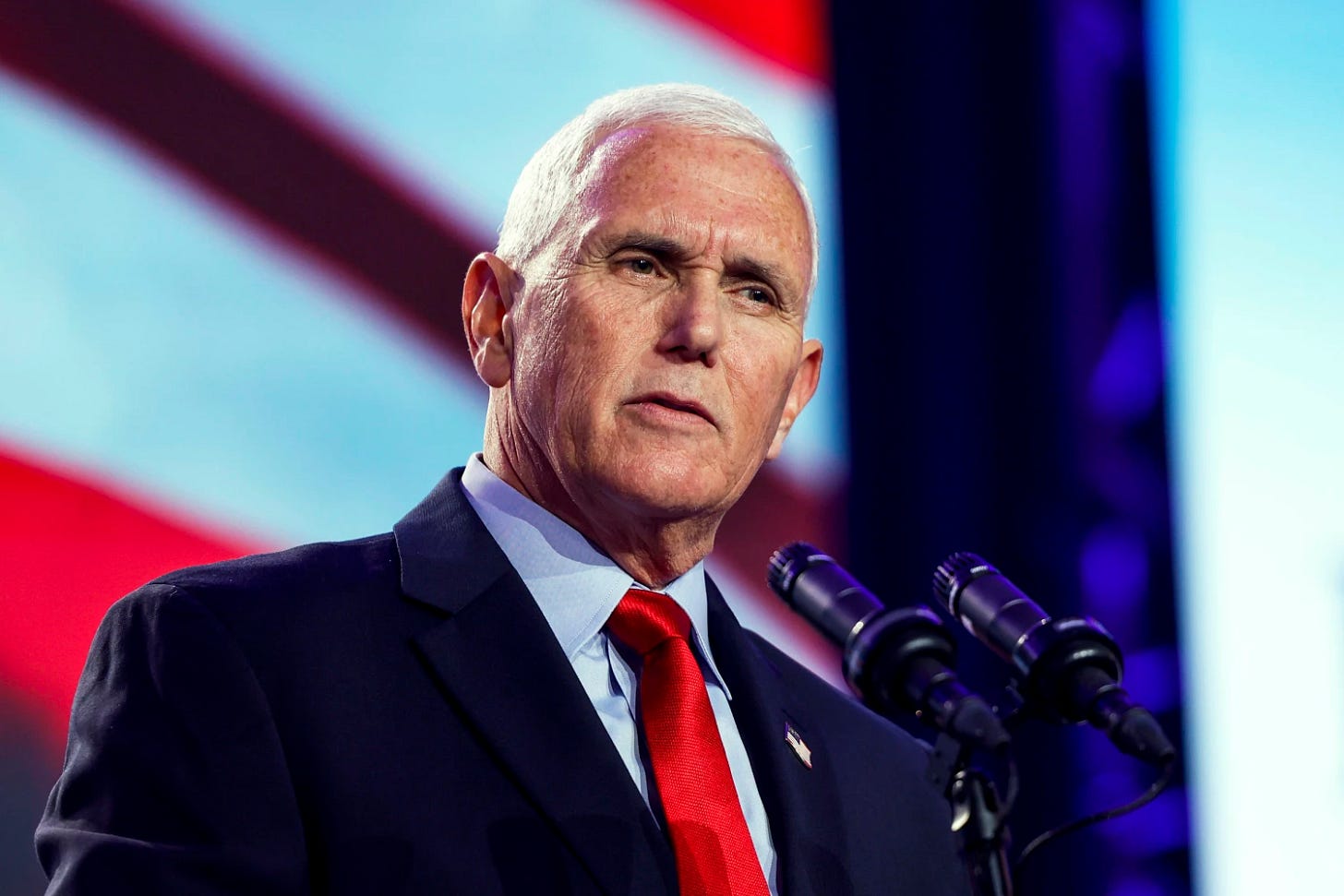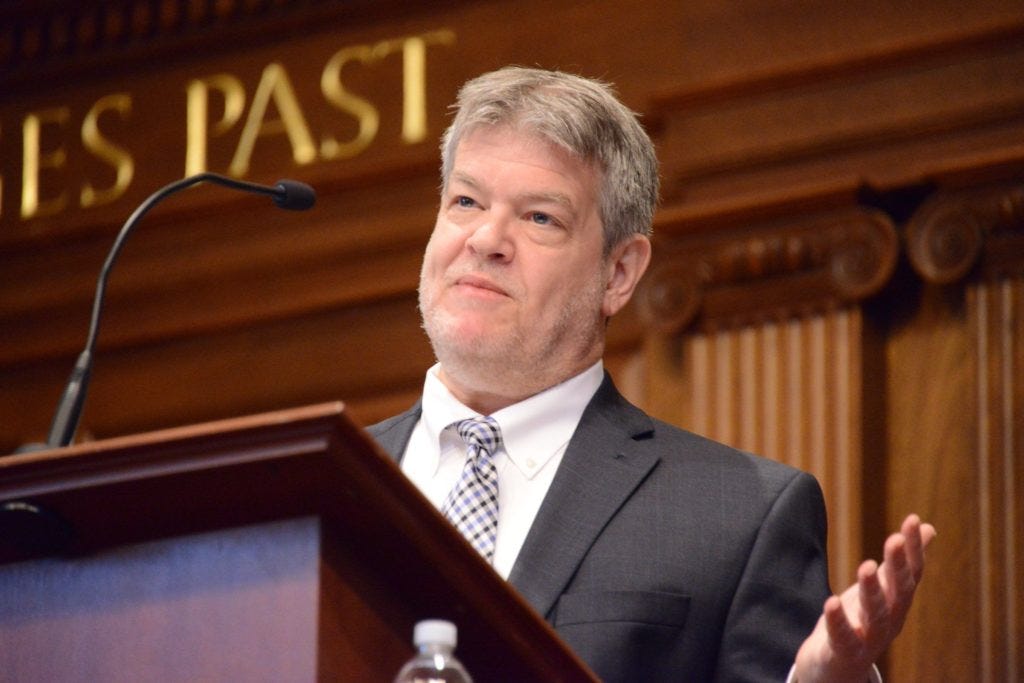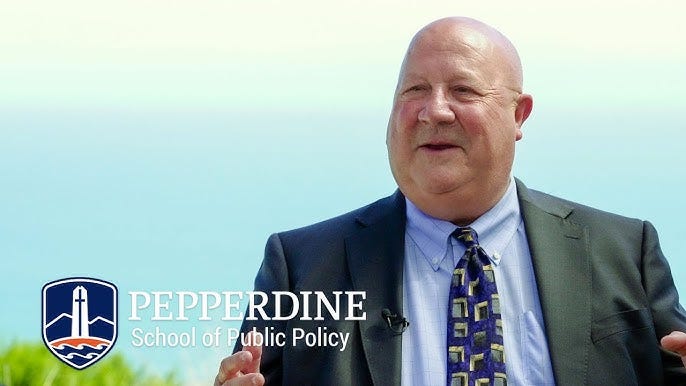Value propositions
FreeCons reflect on virtue and vice at a perilous moment in American politics
Nearly two years ago, organizers of the Freedom Conservatism project announced it with a series of social-media posts, a new Substack, and guest columns at National Review Online and RealClearPolitics.
“There are real differences — and real principles — at stake in the debate between FreeCons and NatCons,” Avik Roy argued at NRO.
“Freedom Conservatives seek to build a coalition that can attract a majority of the country,” wrote Roy, the Texas-based founder and chairman of the Foundation for Research on Equal Opportunity. “National conservatives know that they will never represent anything more than a cantankerous minority faction, hence their apocalyptic rhetoric about how most Americans aren’t really Americans, and their contemplation of the timing and circumstances of armed revolution.”
In co-founder John Hood’s announcement piece, he observed that “every country has conservatives who seek to conserve what is best and distinctive about it.”
“For American conservatives, that means safeguarding our homeland and the people who inhabit it, as well as nurturing the ideas that make our country exceptional,” wrote Hood, president of the Pope Foundation, a North Carolina-based grantmaker.
Those ideas include individual liberty, to be sure, along with many others. “We believe in free enterprise, free trade, free speech, strong families, balanced budgets, and the rule of law,” Hood continued. “We champion equal protection and equal opportunity. We think Washington has too much power and our states, communities, private associations, and households have too little.”
At this perilous historical moment, FreeCons resolutely champion what makes America great — including the indispensable role played by institutions of civil society in building character, fostering true self-government, and limiting the power of the state.
Today we feature FreeCon reflections on the role of virtue in a free society.
Transcendent moral order
Former Vice President Mike Pence is the founder of Advancing American Freedom and a FreeCon signatory.
Pence previously served as the governor of Indiana and represented the state in the U.S. House of Representatives, where he chaired the Republican Study Committee and the House Republican Conference.
In a recent National Affairs essay coauthored with former Heritage Foundation president Ed Feulner, Pence argued that American conservatism was “once united by a commitment to limited government, moral order, and a robust defense of American ideals” but now “appears fractured, its purpose clouded by populist grievances and ideological drift.”
“The urgency of this moment demands a return to first principles,” they continued, “along with a reexamination of what conservatism means and what it seeks to achieve in an age marked by cultural upheaval and political polarization.”
Other key passages from the Pence-Feulner piece:
“Conservatism is not a rigid ideology promising utopia; it is a disposition — a state of mind grounded in timeless principles. It recognizes human nature as it is and has been throughout the ages, and points toward a distinct approach to governing ourselves.”
“Conservatism values obedience to a transcendent moral order, reverence for tradition and our forebears, prudence in decision-making, humility regarding our place in history, and the pursuit of justice in a fallen world. These harmonious values make conservatism a timeless philosophy that aligns seamlessly with self-governance.”
“Conservatism is far more than a resistance to disorder — it is a promise, a calling, a duty to preserve what is good and cultivate what is enduring. If we hold fast to this charge, we will not only secure the blessings of liberty for ourselves, we will pass down to future generations an America that is strong, free, and truly worthy of its founding ideals.”
Virtue of gratitude
Jeff Jacoby is a columnist for The Boston Globe, former chief editorial writer for the Boston Herald, and a FreeCon signatory.
A former radio commentator and TV host, Jacoby won the Breindel Prize for excellence in opinion journalism as well as the Institute for Justice’s Thomas Paine Award, presented to journalists "who dedicate their work to the preservation and championing of individual liberty."
In a recent column, Jacoby described his own open-heart surgery and the lessons he drew from the experience.
“There is something intensely human about the vulnerability of the human heart,” he wrote. “Even in an age when more than 3,000 cardiac operations are performed every day, we still think of it as sacred territory. Perhaps it is.”
“For me, heart surgery was more than just a medical event. It was a confrontation with mortality and a chance to marvel at what science and surgery have made possible — and what they still cannot fully explain.”
“That I am here, writing this, with a new valve pulsing away in my chest, is a gift I do not minimize. Like Elie Wiesel, I too am ‘overcome with a feeling of gratitude.’”
Sin of envy
Steven Hayward is a professor of public policy at Pepperdine University who blogs at Political Questions and frequently contributes to national newspapers and magazines. He’s also a FreeCon signatory.
Hayward’s books include The Age of Reagan: The Fall of the Old Liberal Order, 1964-1980 and The Age of Reagan: The Conservative Counter-Revolution, 1980-1989, as well as works on environmental policy, Straussian political science, Winston Churchill, and M. Stanton Evans.
In a recent National Affairs essay authored with Linda Denno, associate dean of academic affairs and administration at the University of Arizona, Hayward took aim at the politics of social justice.
“When envy is allowed to become a motivating force in politics, the results can be highly destructive,” they argued. “This is why envy finds moral proscriptions and, especially in primitive cultures, boundaries or sanctions.”
“The acceptance of envy, either active or implicit, is ultimately used to pursue an unachievable end: equity, or the complete equality of material conditions,” they continued.
“The need to harness a destructive vice to obtain an impracticable end is no accident: Contravention of reality always requires corrupt means. To keep its corrosive tendencies at bay, Americans must learn to recognize envy for what it is and be wary of any political project that embraces it as a primary tool.”
Christianity offers a “novel remedy for the destructive problem of envy,” they concluded, by “placing the desire to help others above the need to compare oneself to others or to try and supersede them.”
The faith’s “successful attempt to place the burden of suppressing envy on the envious rather than the envied was a critical factor in the unparalleled prosperity that accompanied Christianity's dominance of Western civilization.”
In the mix
• In The Dispatch, FreeCon signatory Kevin Williamson reflected on Zohran Mamdani’s Democratic primary win in the New York mayoral race and rhetorical uses of the term “socialism.”
“There was a time” Williamson wrote, “when one might have argued that Sweden or Denmark, or even the United Kingdom, offered an example of democratic socialism, but all of those countries embarked on courses of market-oriented liberal reform — precisely because they are democratic, and the demos was not satisfied with the results of socialism: regimentation, stagnation, rationing, etc.”
“If by ‘socialist’ Zohran Mamdani means ‘to the left of Andrew Cuomo, and more uncompromising,’ then that is not a great place to be, and it has its own problems. If he is serious about trying to supplant Gristedes with a state-run enterprise, then he is a hall of fame fool in a city that really cannot afford another one.”
• At The Daily Economy, FreeCon signatory Vance Ginn evaluated a new technology-policy playbook published by American Compass and other organizations with a nationalist-populist bent.
Its “message is simple: America must compete with China, rebuild its industrial base, and restore national greatness,” wrote Ginn, an economics consultant for Americans for Tax Reform, the Pelican Institute, and other policy nonprofits.
“But the policy prescription is anything but conservative. It’s industrial policy — a warmed-over central planning scheme that expands government authority in the name of economic vitality.”
“Liberty doesn’t need a five-year plan. It needs guardrails, not gates. It needs accountability, not committees. And it needs trust — in people, in markets, and in the timeless truth that free societies produce the most prosperous, dynamic, and moral outcomes the world has ever known.”
• In the Washington Examiner, FreeCon signatory Stephen Kent celebrated news reports that the Trump administration has decided against issuing a health directive that would have discouraged all alcohol consumption.
“Americans know that alcohol, when abused, is dangerous,” wrote Kent, media director at the Consumer Choice Center. “What we need now from Washington isn’t more paternalism, but a framework that supports individual agency and healthy habits on everything from diet to exercise.”
“A life of balance provides the most possibility for individual choice, and the government’s role is to inform, not prescribe.”



